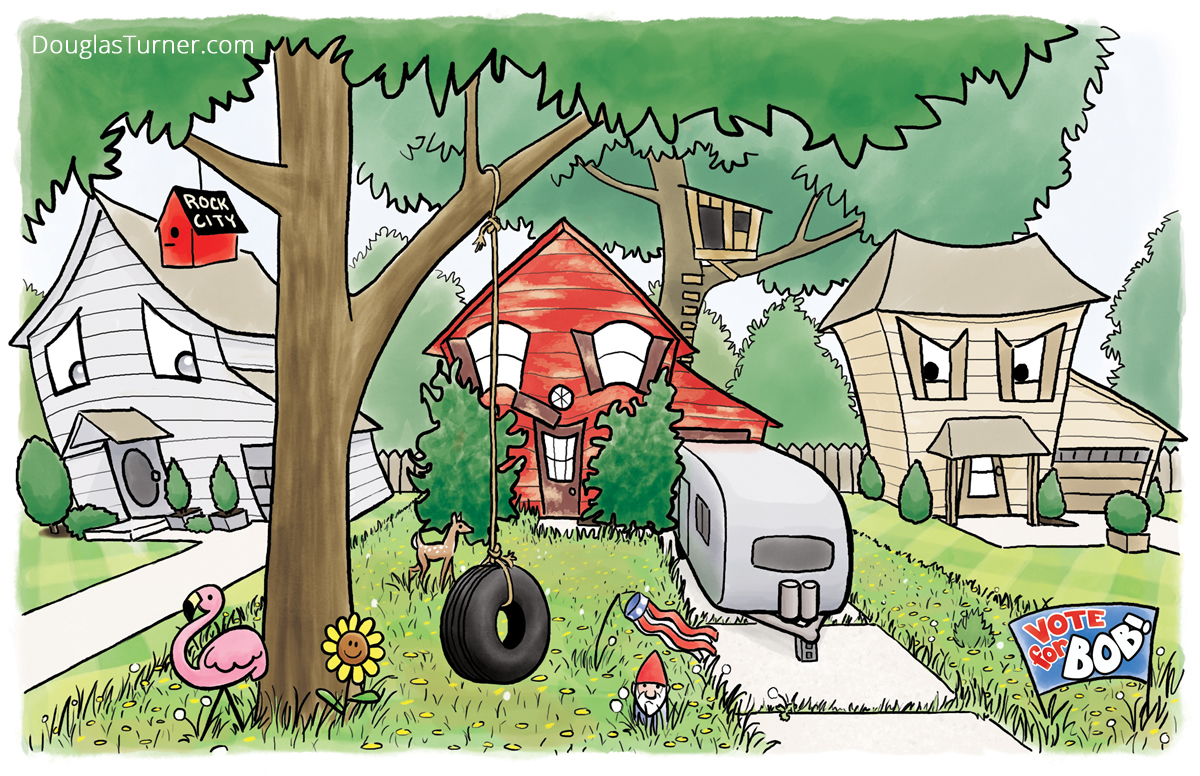HOA Board Enforcement Policy Gone Wild?
 How much can your HOA Board do without owner approval? When the HOA Board takes steps that can cost the owners money, like adopting an enforcement policy, owners get concerned. Enforcement policy usually involves fines and fees for non-compliance with the HOA covenants. Don’t all the owners get a say on that important of a decision? It may surprise HOA members to learn that their HOA Board probably has the authority to implement an enforcement policy without consulting the owners.
How much can your HOA Board do without owner approval? When the HOA Board takes steps that can cost the owners money, like adopting an enforcement policy, owners get concerned. Enforcement policy usually involves fines and fees for non-compliance with the HOA covenants. Don’t all the owners get a say on that important of a decision? It may surprise HOA members to learn that their HOA Board probably has the authority to implement an enforcement policy without consulting the owners.
An HOA’s Declaration of Covenants generally includes language stating that the HOA has the right to enforce the Declaration’s provisions. This is usually further clarified in the Bylaws. The Bylaws often outline the powers and responsibilities of the Board, including their power to adopt policies and procedures.
This is in accord with Colorado statutes. Colorado Revised Statute 38-33.3-209.5(1)(b)(IV) states: “To promote responsible governance, associations shall… Adopt policies, procedures, and rules and regulations concerning… Enforcement of covenants and rules, including notice and hearing procedures and the schedule of fines.” Then it goes on to say that the Board can act on behalf of the association in all instances (C.R.S. 38-33.3-303(1)(A)). By logical extension, a Board can therefore act on behalf of the association in adopting procedures regarding the enforcement of covenants. Colorado Statute also lays out situations where the Board cannot act on behalf of the association (e.g. amending the declaration, terminating the common interest community, or electing members of the executive board or determining the qualifications, powers and duties, or terms of office of executive board members) (C.R.S. 38-33.3-303(3)(A)). None of the listed exclusions would cover passing procedures on covenant enforcement. Thus, the Board probably has the authority under the HOA’s governing documents and Colorado statute to pass the enforcement procedure based on a Board vote.
Owners objecting to Board actions can always contest to and through the HOA. Owners can contact other members regarding their opposition and the reasoning for the opposition. The more support from other owners, the more pressure they can probably apply to the Board to consider their point of view. Also, all members of the HOA have a right to attend Board meetings (as long as they are not in executive session). (C.R.S. 38-33.3-308(2)(a)). Members can request an opportunity to be heard at the meeting to voice their opposition. While the law and the governing documents may allow the Board to take an action under their own authority, the Board is supposed to be representing all members. If the Board is not acting in the interests of the owners, then there is always the option to vote them out at the next election and have the new Board undo the covenant enforcement procedure.


